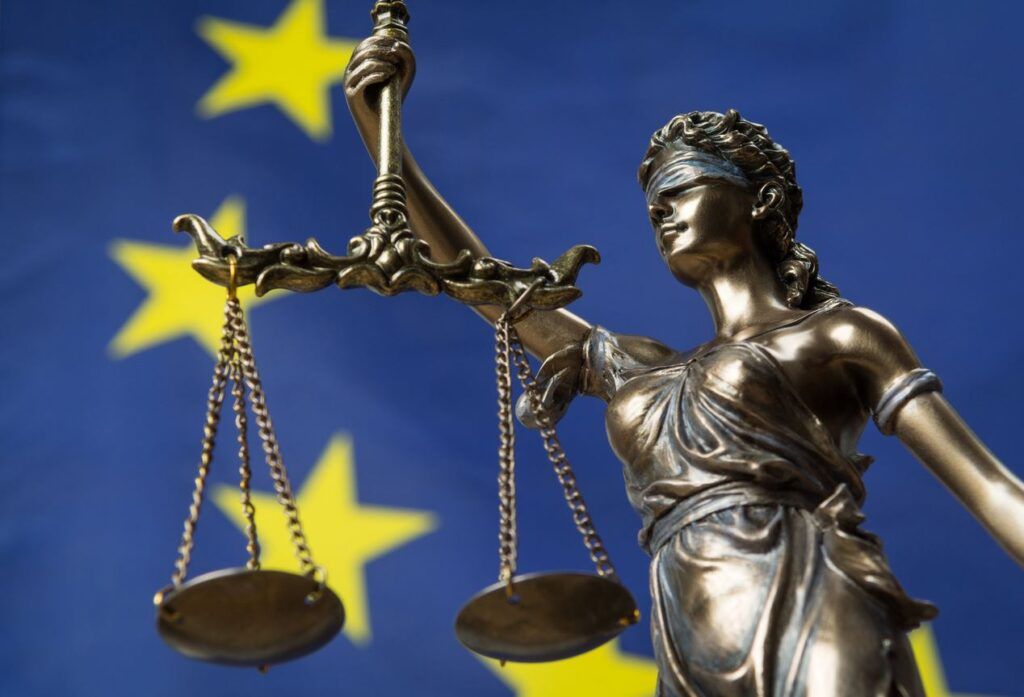MEPs want the European Commission to prove it’s up to the task of defending the EU budget from member states violating the rule of law principle.
MEPs will discuss the application of the rules adopted in 2020 linking the disbursement of EU funds to member states respecting the rule of law and EU values during a plenary session in June.
Defending the rule of law: a matter of urgency
During a meeting of Parliament’s budget and budgetary control committees on 26 May, MEPs discussed the way forward with Gert Jan Koopman, Director-General of the Commission’s budget department.
Koopman emphasised the sensitive nature of potential Commission assessments regarding the rule of law in EU countries: “Decisions taken will be subject to full judicial review by the [European] Court of Justice,” he said. “We need to get this right from the beginning. We simply cannot afford to make mistakes and bring cases that are annulled by the Court. This will be a disaster.”
The Commission is preparing guidelines explaining how it will implement the law. Koopman said that the Commission will consult Parliament on the guidelines in the first half of June.
MEPs said that the regulation is already quite clear. “If one wanted to have a very short set of guidelines, one could just write in one sentence: ‘Take a look at the regulation’,” said Petri Sarvamaa (EPP, Finland).
Still, Parliament will express an opinion on the guidelines in a report that is expected to be voted on in July. “All member states should be able to see that the Commission is doing its investigations in a truly objective manner,” said Sarvamaa.
“When we speak about violations of the rule of law, this is a very serious topic. We are aware of the fact that we need to be very scrupulous with these assessments. But this rigorousness and this meticulousness cannot postpone the application of the regulation forever,” said Eider Gardiazabal (S&D, Spain).
Other MEPs said there is a rule of law crisis in the EU and called on the Commission to act decisively to prevent further deterioration. Terry Reintke (Greens/EFA, Germany) said: “We have absolute trust in the Commission’s ability to monitor, find and assess cases. You have some of the smartest lawyers in Europe, you have the best civil servants to protect the EU budget and the rule of law.
“But the impression is, and I am speaking on behalf of millions of EU citizens, that you are lacking a certain sense of urgency. It feels like you are sitting in this burning house and you say: ’Before we call the fire brigade, we are actually going to come up with guidelines on how they can extinguish this fire’.”
The EU budget and the rule of law
The legislation adopted at the end of 2020 made access to EU funds conditional on respect for the rule of law. If the Commission establishes that a country is in breach and that the EU’s financial interests are threatened, it can propose that payments from the EU budget to that member state are either cut or frozen.
The Council has to take the decision by a qualified majority. The rules also seek to protect the interests of final beneficiaries – farmers, students, small businesses or NGOs – who should not be punished for the actions of governments.
Legal challenges
Parliament is keen to see the system implemented given concerns in recent years about the rule of law and democracy in some member states.
Hungary and Poland have brought cases before the European Court of Justice demanding that the regulation be annulled. In their meeting on 10-11 December 2020, EU leaders agreed that the Commission should prepare guidelines for the implementation of the rules that should be finalised after the ruling of the Court of Justice.
However, Parliament has insisted that the rules are in force and that the Commission has a legal duty to defend the EU’s interests and values.
More information:







Leave a Reply